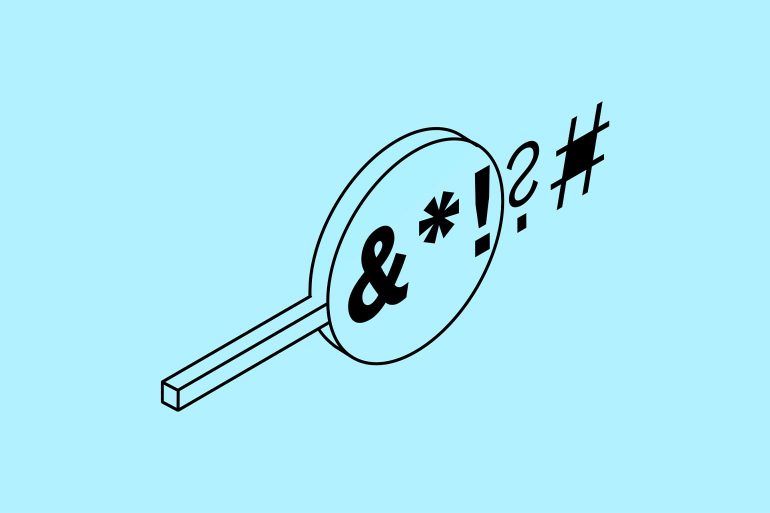Tech billionaire Elon Musk and his partner, music artist Grimes, have decided that the 26-letter alphabet is too restrictive for their baby-naming purposes. Introducing their new-born son to the world as X Æ A-Xii, the name combines ‘elven language’, roman numerals and even a reference to a CIA aeroplane.
Their unconventional naming approach closely reflects a growing trend in the world of brands. In pursuit of differentiation, brands are also going beyond the alphabet and turning to symbols to stand out.
While this opens up many creative naming possibilities, it’s worth considering how fundamental naming rules apply to the innovative use of symbols.
Be easily recognisable and memorable
In a competitive landscape, a brand name should be simple enough to recognise and interesting enough to recall.
Naming is an opportunity to break convention. Just as Steve Jobs went beyond a descriptive name for his computer company, Gwyneth Paltrow named her daughter Apple, in order to break the mould.
The use of symbols can help differentiate, particularly in industries where there are few differentiators. For example, in the world of insurance, More Th>n and LV= have used symbols to challenge naming expectations and increase recall over their competitors.
Tell a meaningful story
Symbols don’t live in a vacuum; they are representative and inherently carry meaning.
Using random symbols for the sake of unconventionality leaves your brand open to misinterpretation. There’s been an abundance of theories about the meaning behind X Æ A-Xii, ranging from Norse mythology to the book of Genesis. The key to managing perception is leveraging a symbol that shapes the narrative around your brand name, to increase understanding.
The Taiwanese coffee and bakery chain called 85°C, attributes its name to the optimum temperature for preparing coffee. A simple, yet meaningful story that uses °C to imply precision and quality.
Reflect your authentic identity
When used correctly, symbols can help to emphasise the tone of your brand. An exclamation mark at the end of Yahoo! and YUM! communicates the excitement and enthusiasm of the brands’ personalities. It ensures that the personality is consistent across the brand identity system. Within their respective categories, this tone is appropriate and authentic, however it would be at odds with the tone of a serious law firm.
Be easy to pronounce
There’s a fine balance between ingenious and impractical. Your name will serve as a reference point for your brand, and in order for people to refer to it, they need to be able to say it.
X Æ A-Xii is visually recognisable, but impossible to pronounce. Similarly, the Korean cosmetics company su:m37° also uses a very symbol heavy name. While it certainly leaves a visual impression, the colon could confuse or complicate its reading and pronunciation, diluting its brand equity. After all, a brand also lives through word-of-mouth and, increasingly, through voice technology.
Be legally availability
Creativity aside, brand names need to be legally available. Legal restrictions prohibit the inclusion of some symbols on a trademark registration; for example, parentheses.
Neglecting to carry out legal checks can lead to compromises on your chosen name. Elon Musk and Grimes faced this challenge when the state of California rejected their use of numbers on X Æ A-Xii’s birth certificate, necessitating a change. To avoid unwanted amendments, it’s important to make legal checks a part of the naming process.
Good domain availability
Securing an available domain for your name is a hygiene factor in our digitally literate world. Lucky that Elon Musk already owns X.com. When it comes to symbols, this process is about more than availability.
Domain names restrict common symbols. For example, consumer association Which? has to omit the ‘?’ from their domain name. Inconsistency can cause confusion and make it harder for customers to find your brand online. Having made a strong effort to create a differentiated name using symbols, all your work could be undone by being buried deep in the search results page.
Globally resonant
Choosing a name is a long-term decision. Should you wish to expand globally, your name will need to resonate on a global level. In going beyond the English alphabet, the use of symbols crosses linguistic boundaries and arguably can increase global resonance.
Nevertheless, its resonance will also come down to the brand you build around your name. After all, a name is not only a point of reference, it’s a container of meaning.
Baby or brand, when it comes to naming, differentiation is not the only key to success.
If you’re considering using symbols in branding your company or next product, ask yourself these questions:
- Consider the usability of your name, can you consistently apply it across all your touchpoints, from your website to voice-activated assistants?
- Is it legal in all the markets you want to operate in?
- Is it easy to pronounce? If customers want to share their good review of your product, how can they tell their friends what to look for?
- Can using a symbol in the name of the brand (or indeed baby) earn free publicity for your new product or brand, supporting your ambitions?
**
Previously published by Saffron Brand Consultants.

